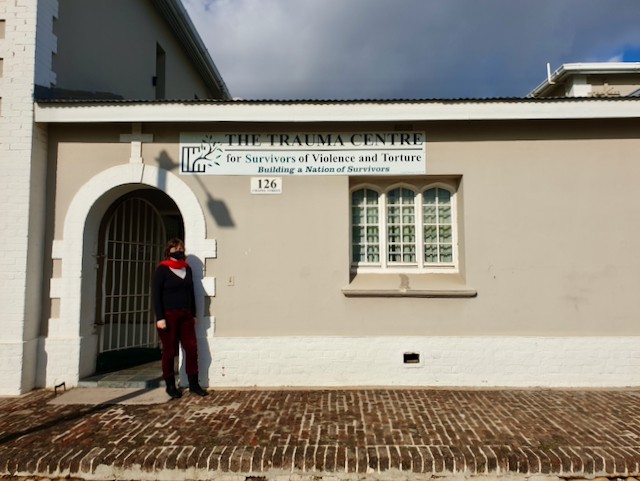Call for better funding for women’s shelters
Social Development Minister Lindiwe Zulu says the private sector should fund and support shelters
This is the Trauma Centre for Survivors of Violence and Torture in Woodstock. At the National Shelter Indaba last week, organisations called for better funding for shelters, among other things. Archive photo: Mary-Anne Gontsana
- Insufficient funding, poor treatment of survivors of gender-based violence, and challenges getting protection orders were some of the issues raised by activists at the National Shelter Indaba in Johannesburg last week.
- The annual 16 Days of Activism campaign against violence against women and children started on 25 November.
- Organisations at the event also called for better training of frontline responders like police and doctors who are usually the first to engage with survivors.
- Minister of Social Development Lindiwe Zulu called on the private sector to fund and support shelters.
Insufficient funding, poor treatment of gender-based violence survivors, and challenges accessing protection orders were some of the issues raised by activists at the National Shelter Indaba in Johannesburg last week.
“On paper we have wonderful laws, we have wonderful policies, but implementation is where we fall short,” said Dianne Massawe, Board chairperson of the National Shelter Movement of SA.
She said it was not enough to point figures at government departments like the Department of Social Development. “Violence is not just a Department of Social Development, SAPS or justice problem,” she said.
During the indaba, many organisations called for better training of frontline responders like police and doctors who are usually the first to engage with survivors of gender-based violence. One of the main issues raised was difficulties getting protection orders.
Massawe said it not uncommon for police to turn away women who had not yet been physically abused or to impose unnecessary requirements before they could get a protection order.
She said some doctors are afraid to fill out documents in support of protection orders because they do not want to appear in court to testify about their observations.
According to Bronwyn Moore of Community Cohesion, some magisterial districts don’t grant protection orders at all.
One of the problems in the protection order process is the removal of firearms from alleged perpetrators, she said. Moore said that a known abuser was often allowed to keep his firearm because he told the police he needed to protect his business.
Annah Mabunda from the Department of Health said it is almost impossible to get a firearm removed if the perpetrator is a police or law enforcement officer.
Petronella Skosana, a social worker at a shelter in Mpumalanga, said many of the survivors they deal with do not speak English and cannot read, which makes it hard for them to fill out the documents needed to obtain a protection order.
Another social worker, Tshidi Manhole, said survivors often have to wait hours for rape kits after an assault, because the doctors with the relevant training are busy.
Manhole said social workers can only do so much to help survivors prepare should their case go to trial. Some survivors have breakdowns and panic attacks when testifying against abusers in court, which could be prevented from proper witness preparation from the National Prosecuting Authority, she said.
Fikile Faltein from DSD said only 22 shelters are properly equipped to deal with survivors of human trafficking, which requires psychiatric and rehabilitative support.
Minister of Social Development Lindiwe Zulu called on the private sector to fund and support shelters by making available “suitable buildings and infrastructure which can be used as shelters for victims and survivors of gender-based violence and femicide”.
Next: Solidarity demonstrations with Palestinians held in Joburg and Cape Town
Previous: Hawker gets her money back from Checkers
© 2023 GroundUp. This article is licensed under a Creative Commons Attribution-NoDerivatives 4.0 International License.
You may republish this article, so long as you credit the authors and GroundUp, and do not change the text. Please include a link back to the original article.
We put an invisible pixel in the article so that we can count traffic to republishers. All analytics tools are solely on our servers. We do not give our logs to any third party. Logs are deleted after two weeks. We do not use any IP address identifying information except to count regional traffic. We are solely interested in counting hits, not tracking users. If you republish, please do not delete the invisible pixel.



